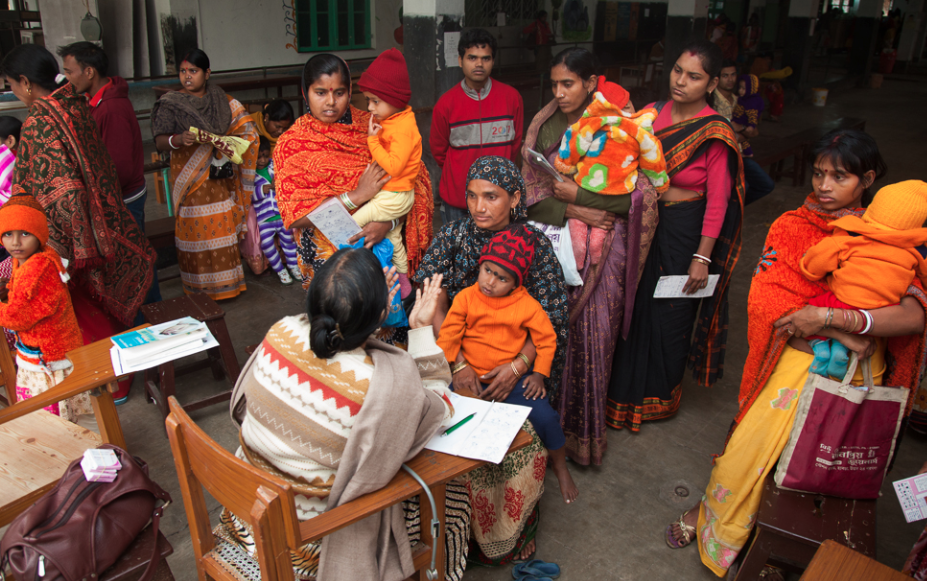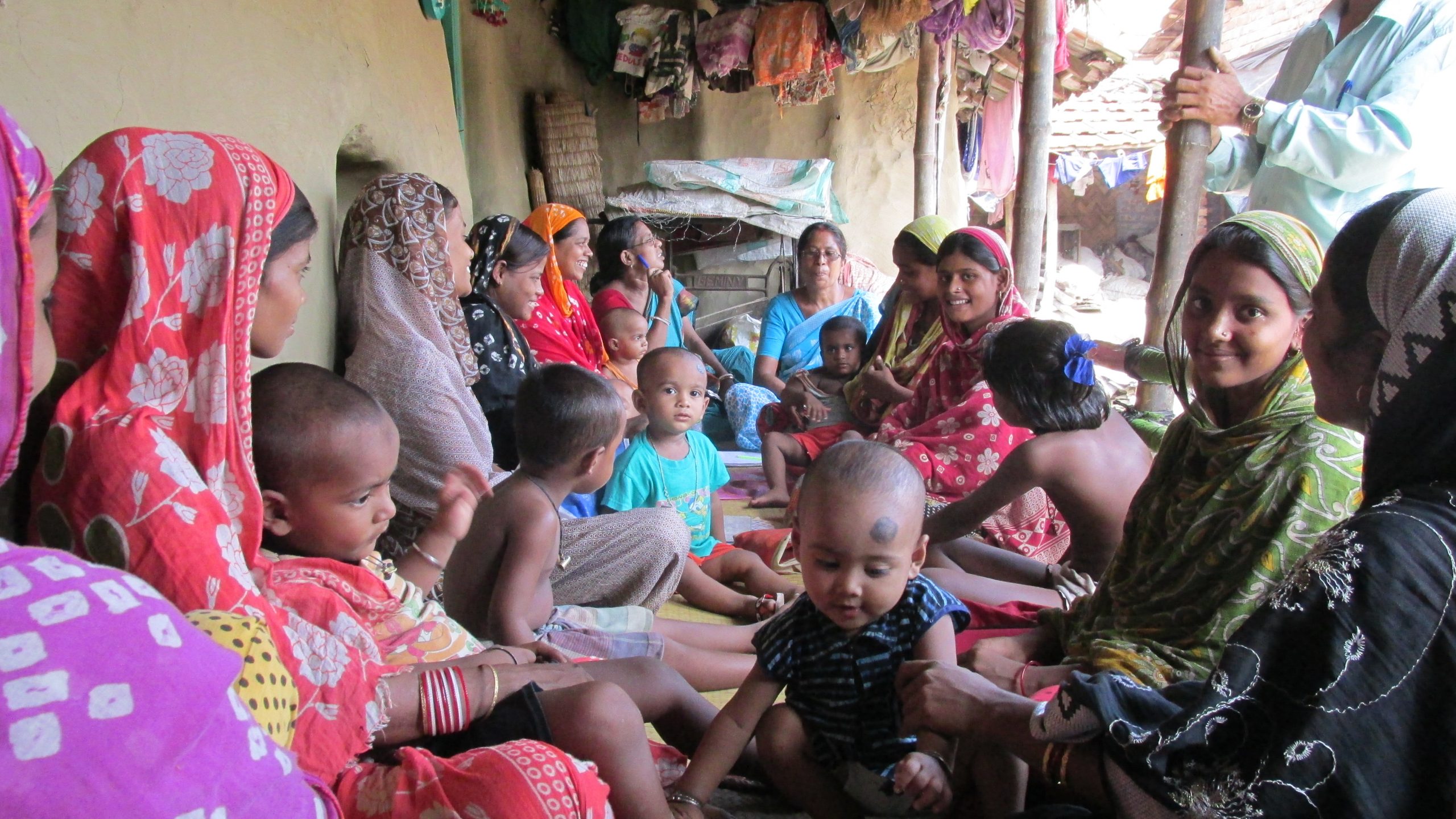Health
CINI’s work
CINI works with families and communities, as well as with institutional and government workers, to bridge the gap between service providers and service users. We work to build community confidence, make positive changes for women and children, and ensure that vulnerable people are aware of the support available to them.
In parallel, CINI trains health service providers, such as government front-line community health ASHA workers, to act as effective healthcare agents, as mandated by the National Health Mission, which entrusted CINI to function as the West Bengal State Nodal Agency (SNA).
We work to train and motivate local women and community self-help groups to act as a support network within the community. They work to create a community vulnerability map, implement health-focused strategies, and interact with families to help people access primary healthcare services.
CINI educates communities on issues relating to child health, reproductive and sexual health, including HIV/AIDS, and appropriate hygienic practices to prevent common illnesses at home. We motivate families to seek full immunisation coverage, antenatal check-ups and diagnostic tests during pregnancy, and early treatment in case of illness. We pay particular attention to adolescent health, and address reproductive and sexual health in order to prevent sexually transmitted diseases and unplanned pregnancies. We strive to empower young people with knowledge of the physical, psychological and emotional changes that take place during puberty and adolescence.

The Fine Detail: The Thursday Clinic
At the daily and weekly clinics, such as the Thursday Clinic, which is held on our main campus in Daulatpur on the fringes of Kolkata, women and children clinics are run to provide outpatient care, nutrition and health counselling and treatment for reproductive tract infections. Pregnant women and women with children up to five years of agecan consult doctors and health workers about ante-natal care, breastfeeding, nutrition, vaccination and childhood illnesses.

The Big Picture: The First 1000 Days
CINI focuses on key points in a child’s life and development. The first 1000 days of life include pregnancy and the first two years of life. 80% of brain development occurs in this phase, and if a child is affected by malnutrtion and stunting, it can have a lifelong effect on the child’s life. CINI works to ensure that pregnant and breastfeeding mothers have access to good quality healthcare; breastfeeding and weaning support. Intervention during this window is both life saving and life changing.
